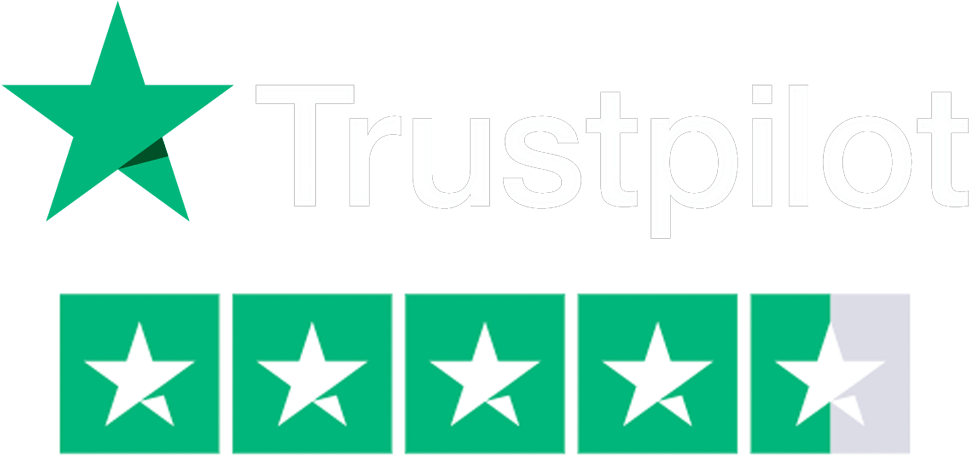In the dynamic world of mobile and web app development, Flutter stands out in 2024 as a revolutionary open-source UI software development kit developed by Google. It is transforming the way developers build cross-platform applications, offering speed, efficiency, and the ability to write a single codebase for mobile, web, and desktop platforms.
This guide explores why Flutter is a sought-after skill and how companies can successfully hire adept Flutter developers.
- What is Flutter?
- Advantages of Flutter
- Understanding the Flutter Developer Role
- Skills and Qualifications Required for a Proficient Flutter Developer
- The Hiring Process
- Technical Assessments
- What can we build using Flutter?
- How Much Does It Cost To Hire a Flutter App Developer?
- Hire a Flutter Developer with ellow
What is Flutter?
Flutter is a highly efficient and versatile open-source framework created by Google for developing natively compiled applications. It’s unique in that it allows for a single codebase to create apps for multiple platforms, including iOS, Android, web, and desktop. This cross-platform capability significantly streamlines the development process, reducing the time and resources needed for app development.
Additionally, Flutter’s rich set of pre-designed widgets, vibrant ecosystem, and strong community support make it an attractive skill set to seek in candidates, positioning the company at the forefront of modern, efficient app development.
Advantages of Flutter
Flutter’s rise in popularity is no surprise, given its numerous advantages:
1. Fast Development and High Performance: Flutter’s hot reload feature enables developers to see the changes in code immediately in the app, significantly speeding up the development process. Additionally, its ability to compile directly into native code eliminates performance issues typically associated with cross-platform approaches.
2. Consistent UI and Business Logic Across Platforms: With Flutter, the need for platform-specific UI components is eliminated. This uniformity ensures a consistent user experience across all platforms, which is a significant advantage in today’s market.
3. Vibrant Ecosystem and Community Support: Being a Google product, Flutter is supported by a robust ecosystem and a rapidly growing community, providing a wealth of resources, libraries, and support.
As we navigate 2024, Flutter’s relevance continues to grow. The demand for seamless, visually appealing, and high-performance applications is at an all-time high. Businesses recognize the value of a framework that offers speed, efficiency, and cross-platform compatibility, making Flutter’s expertise highly sought after.
Additionally, with continuous updates and support from Google, Flutter is not just a trend but a sustainable choice for future app development.
Understanding the Flutter Developer Role
To harness the full potential of Flutter, it’s crucial to understand what constitutes a proficient Flutter developer. This knowledge is key to identifying the right talent that can propel your projects forward. Let’s break down the essential skills and qualifications, as well as the varied experience levels of Flutter developers.
Skills and Qualifications Required for a Proficient Flutter Developer
The demand for Flutter developers is on the rise, with the Flutter framework being used by hundreds of thousands of apps worldwide. A survey by Statista in 2022 showed that 46% of software developers used Flutter, a significant increase from previous years, highlighting its growing popularity.
To meet this demand, a proficient Flutter developer must possess a unique blend of technical skills and foundational software development principles. Here are the key areas to focus on:
1. Proficiency in Dart
- Importance: Dart is the programming language behind Flutter. As of 2024, it’s essential for Flutter developers to have a strong grasp of Dart, as it’s unique compared to more traditional languages like JavaScript.
- What to Look For: Look for experience in writing Dart code, understanding its syntax, and implementing its advanced features. For instance, a candidate who has contributed to open-source Dart projects or has a portfolio of projects built in Dart would be ideal.
2. Understanding of Flutter SDK
- Relevance: The Flutter SDK is the backbone of Flutter development. It provides a rich set of pre-designed widgets and tools for building complex UIs.
- Evaluation: Assessing a developer’s familiarity with Flutter’s widgets and their implementation in real-world apps is key. A developer who has efficiently utilized the Flutter SDK in past projects, especially in creating custom widgets or leveraging native device features, is a valuable asset.
3. Cross-Platform Development Skills
- Market Demand: As businesses seek to target both iOS and Android users, cross-platform development skills have become highly sought after. According to a 2023 developer survey, over 50% of mobile developers now work on cross-platform applications.
- Assessment: Evaluate the candidate’s experience in building applications that run seamlessly on multiple platforms. Examples of apps they’ve developed that are live on both the Apple App Store and Google Play Store can serve as practical demonstrations of their skills.
4. Familiarity with RESTful APIs and Backend Services
- Integration Skills: Modern apps often require integration with RESTful APIs and backend services for functionalities like data storage, retrieval, and authentication.
- Evidence: Candidates who have experience connecting Flutter apps to various backend services, demonstrated through their project portfolio, are highly valuable.
5. Experience with Version Control Systems
- Collaboration Essential: In a collaborative environment, version control systems like Git are indispensable. A 2022 survey indicated that over 90% of software developers use Git.
- Verification: Check for a candidate’s proficiency with Git through their involvement in collaborative projects or contributions to public repositories on platforms like GitHub.
6. UI/UX Principles
- Aesthetic Acumen: A good Flutter developer needs an eye for design and the ability to translate user experience designs into functional applications.
- Portfolio Review: Assess their understanding of UI/UX principles through their past work. Well-designed applications in their portfolio that provide intuitive user experiences are strong indicators of their capabilities.
7. Problem-Solving Skills
- Critical for Optimization: Strong analytical and problem-solving skills are necessary for troubleshooting and optimizing app performance.
- Scenario-Based Evaluation: Pose hypothetical problems or past challenges you’ve faced in your projects and ask how they would approach these issues. Their responses can give insights into their problem-solving abilities.
The Hiring Process
We at ellow have developed effective strategies for hiring Flutter developers through trial and error. Here’s a breakdown of our most effective steps for attracting and evaluating top talent.
1. Job Description: Crafting the Magnet
The job description is your first interaction with potential candidates. It needs to be clear, concise, and appealing. Here’s what we have learned:
- Highlight Flutter-specific Skills: Clearly outline the technical skills and experience with Flutter required for the role. This should include knowledge of Dart, an understanding of state management, and experience with cross-platform development.
- Emphasize Growth Opportunities: A LinkedIn survey found that 94% of employees would stay at a company longer if it invested in their career development. Mentioning opportunities for learning and growth can significantly increase the appeal of the job.
- Culture Fit: Describe your company’s culture and the kind of individual who would thrive in your environment. A good cultural fit is as important as technical proficiency.
- Be Transparent About Responsibilities and Expectations: Provide a clear picture of what their day-to-day duties will be. This transparency helps set realistic expectations.
2. Sourcing Candidates: Casting the Net Wide
Finding the right candidates requires looking in the right places. Here’s what’s worked for me:
- Leverage Job Boards: Platforms like LinkedIn, Indeed, Naukri, and Stack Overflow are great for finding skilled developers. These platforms are not just popular but effective. A survey showed that over 60% of job seekers first check these platforms.
- Tap into Social Media: With over 4.2 billion social media users globally, platforms like Twitter and Instagram serve as untapped reservoirs for talent, especially in tech-focused groups.
- Employee Referrals: Often, the best candidates come through employee referrals. Encourage your team to recommend people they believe would be a good fit.
3. Screening: The First Filter
Screening helps in shortlisting candidates who not only have the required skills but also fit the company culture. Here’s my approach:
- Resume Review: Focus on relevant experience and projects. Look for clear indications of their work with Flutter.
- Initial Call: A brief call to discuss their experience, interest in the role, and availability can tell you a lot about their communication skills and enthusiasm.
4. Interviewing: The Deep Dive
Interviewing is crucial in assessing a candidate’s technical ability and problem-solving skills. Here’s what to focus on:
- Technical Questions: Ask about their experience with Flutter, specific challenges they’ve faced, and how they overcame them. Questions about state management, widget lifecycle, and asynchronous programming in Dart are insightful.
- Practical Tasks: Assign a small project or problem set related to your company’s work. This not only assesses their technical skills but also their approach to problem-solving.
- Behavioral Questions: Understanding how they work in a team, handle deadlines, and adapt to changes is vital. Questions like “Describe a time when you had to adapt to a significant change in a project” provide valuable insights.
Through these steps, our ellowteam been able to assemble a team of proficient and dedicated Flutter developers for our clients. Each stage of the process is crucial in ensuring that the candidates not only have the necessary technical skills but also align with the company’s vision and culture.
Technical Assessments
In my experience, technical assessments are pivotal in evaluating a Flutter developer’s skills. They not only reveal a candidate’s technical prowess but also provide insights into their problem-solving abilities, coding style, and approach to real-world challenges. Here’s a look at various types of technical assessments and their effectiveness:
1. Coding Tests
Coding tests are a staple in technical assessments. They are effective for assessing a candidate’s fundamental understanding of Flutter and Dart.
- Online Coding Platforms: Platforms like HackerRank or Codility offer standardized tests where candidates can demonstrate their coding skills.
- Custom Challenges: Creating specific challenges related to your business needs can be more revealing. For instance, asking candidates to create a specific widget in Flutter tests their practical skills in a relevant context.
- Effectiveness: Coding tests are great for gauging technical knowledge but may not fully reflect a candidate’s practical coding abilities or how they approach problem-solving in a real-world scenario.
2. Project Simulations
Project simulations involve giving candidates a mini-project similar to what they might encounter in the job.
- Real-World Scenarios: Assign a task that mirrors a typical project your team works on. This could involve developing a small application or adding a feature to an existing project.
- Time-Bound Projects: Set a reasonable deadline to assess how they manage time and handle project requirements under pressure.
- Effectiveness: These simulations are highly effective as they showcase the candidate’s ability to handle work similar to what they would encounter in their role. It also provides insight into their coding standards and ability to follow project guidelines.
3. Pair Programming Sessions
Pair programming sessions involve a candidate and one of your current developers working together on a problem.
- Collaborative Environment: The candidate pairs with an existing team member to solve a problem or develop a feature. This method assesses not only their technical skills but also their ability to collaborate and communicate.
- Real-time Problem-Solving: It gives insight into the candidate’s thought process, how they approach problems, and how they react to feedback.
- Effectiveness: Pair programming is excellent for assessing interpersonal skills, adaptability, and technical ability. However, it can be time-consuming and requires the involvement of your current team members.
Each type of technical assessment has its strengths and limitations. In my role, I’ve found a combination of these methods to be the most effective. Coding tests are great for initial screening, project simulations for evaluating practical skills, and pair programming sessions for understanding a candidate’s collaboration and problem-solving abilities. By utilizing a mix of these assessments, you can gain a comprehensive understanding of a candidate’s technical capabilities and how they would fit into your team.
What can we build using Flutter?
Flutter, as a versatile and powerful framework, enables the creation of a wide range of applications. Here are some examples:
1. Cross-Platform Mobile Apps: Flutter’s primary use case is building natively compiled applications for both iOS and Android from a single codebase. Examples include the Alibaba app, which serves over 50 million users, showcasing Flutter’s scalability.
2. Web Applications: Flutter extends its capabilities to web development, allowing for the creation of visually appealing and responsive web applications. Google Ads, for instance, utilizes Flutter to provide a rich user experience across different platforms.
3. Desktop Applications: With Flutter, you can create desktop applications for Windows, macOS, and Linux. This was exemplified by the release of the Google-made app, Flutter Folio, a platform-adaptive scrapbooking app designed for touch, mouse, and keyboard inputs.
4. Embedded Applications: Flutter is also making strides in embedded device development. For instance, Google’s smart display platform, which powers devices like the Google Home Hub, uses Flutter for its UI.
5. Interactive Applications: Flutter’s rich set of widgets and its reactive framework make it ideal for building interactive applications. A notable example is the Reflectly app, a popular AI-driven personal journal app, which leverages Flutter to provide a smooth and engaging user experience.
How Much Does It Cost To Hire a Flutter App Developer?
It is one of the crucial variables that most business owners are constantly worried about. The limitation of budget frequently makes it tough to choose the ideal developer. For instance, if your app project requires expert-level Flutter knowledge, it will be difficult to hire them with a limited budget.
In addition, developers from various countries charge different prices for Flutter app development. Due to this, you should carefully consider how much it will cost to hire Flutter app development companies or developers. You can allocate your resources more effectively as a result.
You must therefore take into account each of these crucial considerations when recruiting Flutter developers. The Flutter app development cost ranges between $15,000 to $2,00,000 per the project’s scope.
Let’s examine the procedures you must adhere to make the best decision.
Hire a Flutter Developer with ellow
Hiring a Flutter Developer with ellow offers a unique and efficient solution for businesses seeking top-tier talent. ellow specializes in connecting companies with the top 3% of software developers, ensuring access to highly skilled and pre-vetted Flutter experts.
The process is significantly faster than traditional hiring, typically taking just 24-48 hours to find a suitable candidate who can join within 2-7 days. This streamlined approach, along with ellow’s global talent pool and high rate of customer satisfaction, makes it an excellent choice for companies looking to quickly and effectively scale their development teams with skilled Flutter professionals.









